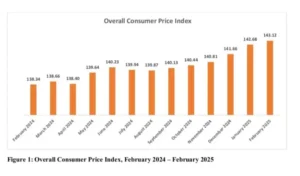In today’s ever-evolving financial landscape, the pursuit of passive income and long-term financial security has become a top priority for many individuals. Fortunately, there are effective avenues for achieving this goal, and two prominent options are money market and bond funds.
In this article, we will explore the world of passive income generation through investments and how Britam, a well-respected financial services provider in Kenya, offers accessible solutions in the form of money market and bond funds.
Before we delve into the specifics of Britam’s investment offerings, it’s essential to understand the core concepts of money market and bond funds.
Money market funds provide a secure and liquid platform for short-term investments, while bond funds cater to medium to long-term financial goals with the potential for higher returns. Both avenues can contribute significantly to building passive income streams.
Britam, with its sterling legacy in the financial industry, emerges as the trusted companion for those embarking on their passive income journey. The company boasts a cadre of seasoned financial advisors, user-friendly digital platforms, and innovative USSD options, catering to a diverse spectrum of investors.
What’s more, Britam’s current offer on bond funds is nothing short of enticing, featuring a lowered minimum investment period and a minimum investment requirement of just 1,000 shillings. This opens doors for investors across varying budgetary horizons.
In this article, we will explore the world of passive income creation, with a particular focus on how Britam’s money market and bond funds can help you secure a more stable and prosperous financial future. Whether you’re new to investing or seeking to diversify your portfolio, Britam’s investment solutions offer a pathway to financial freedom.
Let’s embark on this journey towards financial independence and explore how you can create passive income through money market and bond funds with Britam.
Understanding Passive Income
Passive income refers to earnings generated with minimal effort or active involvement once the initial investment is made. It is a crucial component of financial independence, allowing individuals to build wealth, achieve their financial goals, and enjoy a comfortable retirement.
Unlike active income, which requires you to trade your time and skills for a paycheck, passive income allows your money to work for you. The ultimate measure of financial freedom is when your passive income surpasses your active income, providing you with greater financial security, flexibility, and peace of mind.
Passive income can be derived from various sources, such as dividends, rental income, royalties, and interest from investments like money market and bond funds.
Understanding Money Market and Bond Funds:
Before we leap into the investment horizon, let’s take a moment to understand money market and bond funds:
- Money Market Funds: Money market funds are designed for short-term investments. They offer liquidity, safety, and typically provide competitive returns that outdo the rate of inflation. These funds invest in short-term securities such treasury bills, bank deposits and commercial papers.
- Bond Funds: Bond funds are geared towards medium to long-term investment goals. They primarily invest in a diversified portfolio of bonds, which may include government or corporate. Bond funds offer the potential for higher returns compared to money market funds but may have slightly higher risk.
Why you should consider investing in Money Market and Bond Funds
1. Money Market Funds:
Money market funds are a popular choice for passive income seekers due to their safety, liquidity, and stability.
Here’s why you should consider investing in them:
- Safety
Money market funds primarily invest in short-term, low-risk securities like Treasury bills and bank deposits. This focus on safety ensures the protection of your principal investment.
- Liquidity
Money market funds provide high liquidity, allowing you to access your funds quickly when needed. This makes them suitable for short-term financial goals and emergencies.
- Stability
These funds aim to maintain a stable net asset value (NAV), typically one unit of currency. This stability minimizes the risk of losing money, making money market funds a dependable choice.
- Regular Income
Money market funds generate income through interest payments, which are usually distributed periodically. This income contributes to your passive income stream.
Bond Funds:
Bond funds are another valuable option for passive income generation, offering several advantages:
- Fixed Income
Bond funds primarily invest in a diversified portfolio of bonds. These bonds pay regular interest, providing a predictable source of passive income.
- Diversification
Bond funds spread risk across various bonds, reducing the impact of a default by any single issuer. This diversification enhances the safety of your investments.
- Professional Management
Bond funds are managed by experienced professionals who make strategic investment decisions to maximize returns while managing risk.
- Daily Interest Compounding
Bond funds often utilize daily interest compounding, which means that the interest you earn on your investment is reinvested daily. This compounding effect allows your investment to grow even faster over time. As your interest earnings generate additional income, your overall returns increase exponentially, making bond funds an attractive choice for long-term passive income.
- Capital Preservation
Bond funds are generally considered a lower-risk investment option compared to stocks. While there’s still some risk associated with bond funds, they are historically less volatile. The focus on fixed-income securities, coupled with diversification and professional management, helps mitigate the risk of losing your initial investment. This aspect makes bond funds a more secure choice for those looking to preserve their capital while generating passive income.
A guide to investing in Money Market and Bond Funds
Investing in money market and bond funds can be an excellent way to create passive income and work towards financial freedom.
However, with numerous fund managers in the market and a range of investment options available, it’s crucial to do your due diligence before diving into these investment avenues.
Before embarking on your investment journey in money market and bond funds, it’s crucial to consider key factors that will set the foundation for your financial success.
These factors will help ensure that you make well-informed investment decisions from the outset:
1. Choose a Reputable Fund Manager:
The first step in your investment journey is to identify a reputable fund manager. Fund managers are responsible for managing your investments and making strategic decisions on your behalf. Here’s what to look for
- Regulatory Compliance:
Ensure that the fund manager you choose is regulated by the Capital Markets Authority (CMA) or the relevant regulatory body in your country. Regulatory oversight provides a layer of protection and ensures compliance with industry standards.
- Track Record:
Evaluate the fund manager’s track record and performance history. Look for managers with a proven and consistent track record of investment management and delivering returns in line with your investment goals.
- Transparency:
Transparency is crucial. Seek fund managers who provide clear information about their investment strategies, fees, and historical performance.
2. Verify the Role of Trustees:
Trustees play a vital role in safeguarding your interests as an investor. They ensure that the fund manager adheres to the stated policies and guidelines for each fund. When considering an investment, verify the involvement of trustees and their commitment to protecting your investments.
3. Understand the Custodian’s Role:
Money market and bond fund managers are not banks and do not hold your funds directly. Instead, they work with custodian banks that safeguard your capital. Make sure to understand the custodian’s role, their reputation, and how they handle your investments. This separation of roles provides an added layer of security for your funds.
4. Investment Objectives and Risk Tolerance:
Before investing, assess your financial goals and risk tolerance. Different money market and bond funds have varying investment objectives and levels of risk. Money market funds are typically low risk, while bond funds may carry a slightly higher risk. Choose funds that align with your financial objectives and risk tolerance.
5. Diversification:
Diversification is a fundamental principle of investing. Consider spreading your investments across multiple money market and bond funds or even among different fund managers. Diversification helps reduce risk and ensures that your investments are not overly concentrated in one area.
6. Fees and Expenses:
Understand the fees associated with your chosen funds. Fund managers charge management fees and may have other expenses. While fees are a part of investing, make sure they are reasonable and aligned with the expected returns.
7. Historical Performance:
Examine the historical performance of the money market and bond funds you are interested in. Past performance can provide insights into how the fund has fared under various market conditions. However, remember that past performance is not indicative of future results.
8. Consultation with Financial Advisors:
If you’re unsure about your investment choices or risk tolerance, consider seeking advice from financial advisors. They can help you align your investments with your financial goals and provide insights into potential investment opportunities.
It is important to note that financial education and due diligence are key essentials when embarking on your investment journey.
Now that we’ve explored the world of passive income through money market and bond funds, it’s crucial to understand when and how to utilize these investment options effectively. Let’s delve into the scenarios that guide when you should consider a money market fund versus a bond fund, helping you make informed investment decisions tailored to your financial goals.




